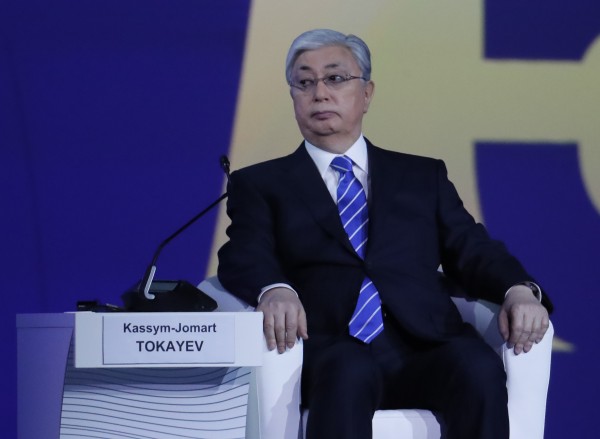Kazakhstan’s parliament adopted on Thursday 19 November a controversial privacy bill which critics say will place even greater constraints on journalists’ ability to carry out investigative journalism.
The bill gives authorities the power to shut down publications and jail journalists for alleged violation of privacy.
The bill, which needs only President Nursultan Nazarbayev’s signature before it can be passed into law, forbids publication of any information related to private lives, including those of public persons, a representative of Radio Free Europe-Radio Liberty’s (RFE-RL) Kazakh Service told IPI in a telephone conversation. The law also forbids publication of any illegally-obtained information.
The privacy bill allows for the amendment of Kazakhstan’s Criminal Code to include penalties of up to five years for offences involving violation of privacy, the RFE-RL Kazakh Service representative told IPI.
Observers say the law is in response to the 2007 publication of transcripts of wire-tapped telephone conversations allegedly between President Nazarbayev and some of his close aides. Shortly thereafter, in October 2007, Kazakh authorities shut down four websites that had published the transcripts.
“We are extremely worried by the fact that this move to curb media freedom comes as Kazakhstan prepares to take over the Chairmanship of the OSCE, heavily compromising the credibility of an organisation charged with the defence of human rights,” said IPI Director David Dadge. “We call on other OSCE member states to strongly criticise such press freedom restrictions, which go against the spirit and intent of the OSCE itself.”
Before assuming next year’s rotating OSCE chairmanship, Kazakhstan promised a package of reforms, including to its media law, widely considered one of the most restrictive in Central Asia. Attacks against independent journalists and media outlets remain common in Kazakhstan.
In August this year, IPI protested the three-year prison sentence handed down to editor Ramazan Yesergepov. Yesergepov was detained in January 2009 and accused of revealing state secrets, after his newspaper, the weekly Alma-Ata Info, published correspondence between a Kazakh businessman and the country’s National Security Committee. The correspondence appeared to implicate the two parties in corruption.
Tamara Kaleyeva, from the NGO Adil Soz, notes that six chapters in Kazakhstan’s Criminal Code allow the persecution of journalists, while the Administrative Code includes over ten chapters that permit the closure of any mass media outlet. Furthermore, existing legislation does not regulate the size of compensation for journalistic libel, thus making any publishing house vulnerable to abrupt bankruptcy.
In spite of pledges made by the Kazakh government to introduce greater media liberalization before being granted the OSCE chairmanship, yet another restrictive law on the mass media was passed recently. Since August, internet publications are defined as media outlets, and are therefore subject to the existing media laws (www.internews.kz, June 29).


